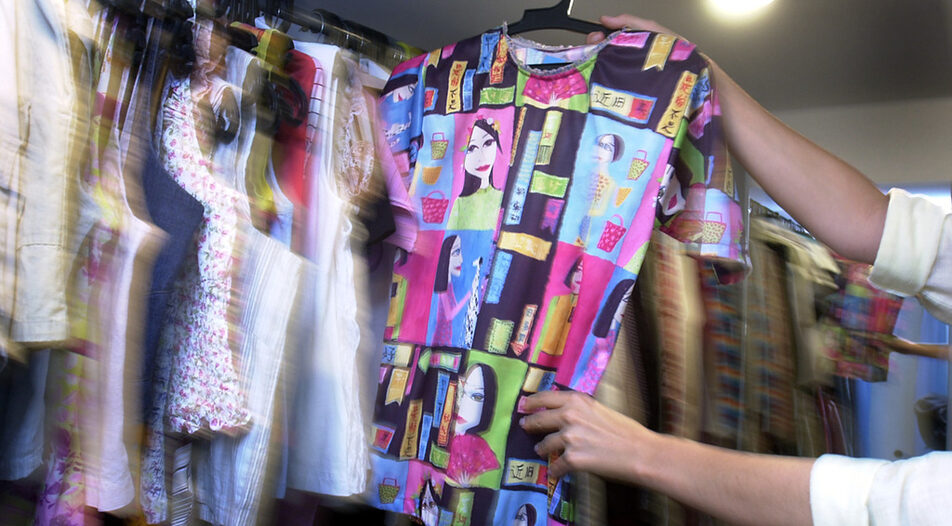Humanita, a Plovdiv-based enterprise for second-hand clothes, is facing two options: rehabilitation or bankruptcy. The indebted company has been in a bankruptcy procedure for about a year; at the same time its land and production building, which were put up as collateral, were sold and re-sold by creditors.
The company was registered in 2014 by Rainer Siegmund, a German citizen who lives in Bulgaria. With more than 25 years of experience in the textile recycling business, he planned to build the largest sorting center for second-hand clothes in Eastern Europe near Plovdiv, employing 120 to 150 people.
In 2015 his project attracted external investors: according to the latest available data as of 2019, 60% of Humanita's share capital is held by individuals, Siegmund being the largest shareholder; the remaining 40% is owned by legal entities, including VC fund BlackPeak Capital with a stake of some 25%.
Complications
The textile sorting and recycling center is now almost finished, except for a few fire safety issues that need to be resolved."The construction of the center started in 2016 and had to finish within a year and a half but there were delays," Ivaylo Gospodinov, managing partner at BlackPeak Capital, said.
A few years later, the pandemic closed Humanita's foreign markets. Another snag was the lack of turnover capital.
The company had to stop operating and could not service its debts. The biggest creditor is Eurobank Bulgaria but there are others, too. In early 2021 the company filed for bankruptcy. In a request to the Plovdiv District Court Gospodinov, who is also CEO, said the assets were not enough to cover the liabilities.
Humanita's report shows a loss of 2.88 million levs (1.48 million euro) in 2020. The company's assets amounted to 9.74 million levs as of January 2021, including 6.76 million levs of fixed tangible assets. Its liabilities are still being evaluated but what is known for now is that Eurobank Bulgaria alone holds 6.3 million levs of recognized receivables.
"It was a logical move to file for bankruptcy, as the procedure would give us time to secure investment and prepare a rehabilitation plan for the business," Gospodinov explained. The management now has a few months to do that and reach an agreement with the creditors.
Debts and creditors
Meanwhile, Eurobank Bulgaria sold a portfolio of non-performing loans that included its receivables from Humanita. The loan was secured with the company's land and building.
Buyer of the portfolio was debt collector SG Group but in May 2021 it sold its receivables from Humanita to Plovdiv Industrial Building. The buyer said it could sell the property back to Humanita's current shareholders, if they wanted to develop the enterprise, or put it up for sale on the market if Humanita was ruled bankrupt.
"The ambitions of the larger shareholders are to try and save the company and restore the business," said Gospodinov. He explained that the processing of second-hand clothes was a global business gaining speed and Humanita's business model was very good.
Germany alone provides 700,000 to 800,000 tonnes of used clothes a year, which are sorted out and sold in poorer countries. There are several such sorting facilities in Southeast Europe, including two in Bulgaria (in Kostinbrod and Varna).
"The main problem is not money, nor the completion of construction. It is the difficulty to set up a team to run the business," Gospodinov said but added Humanita was in talks with some experienced people.
Whether or not production will be restored will be clear within a few months. One option is the adoption of a rehabilitation plan providing for payments to be made to creditors. The other option is bankruptcy and sale of assets.
Humanita, a Plovdiv-based enterprise for second-hand clothes, is facing two options: rehabilitation or bankruptcy. The indebted company has been in a bankruptcy procedure for about a year; at the same time its land and production building, which were put up as collateral, were sold and re-sold by creditors.
The company was registered in 2014 by Rainer Siegmund, a German citizen who lives in Bulgaria. With more than 25 years of experience in the textile recycling business, he planned to build the largest sorting center for second-hand clothes in Eastern Europe near Plovdiv, employing 120 to 150 people.












